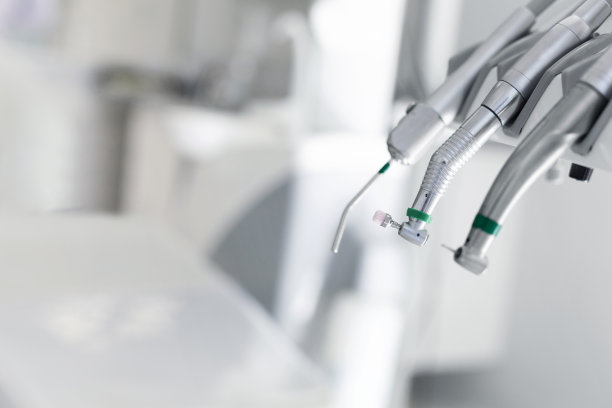Summary: Dental implants are a transformative solution for individuals dealing with tooth loss, enhancing both functionality and aesthetics. However, the success of this procedure relies heavily on following essential guidelines and precautions. This article delves into four crucial aspects of dental implantation: patient evaluation and selection, surgical technique and technology, post-operative care and maintenance, and the importance of choosing qualified professionals. Each of these factors plays a significant role in ensuring optimal outcomes for dental implant procedures, leading to improved oral health and patient satisfaction.
1. Patient Evaluation and Selection Process

Before proceeding with dental implantation, a thorough patient evaluation is vital. This step ensures that candidates possess adequate health to endure the procedure. Dental professionals should assess medical history, current medication, and any underlying health issues, as they can influence healing and implant success.
A comprehensive oral examination is also necessary to evaluate the condition of remaining teeth and gums. A clear understanding of the patient’s oral hygiene habits plays a significant role in determining the likelihood of successful integration of the implant.
Finally, diagnostic imaging techniques such as X-rays or cone beam computed tomography (CBCT) provide detailed information regarding the jawbone structure. This imaging allows the dental team to ascertain bone density and volume, which are crucial for optimal implant placement and longevity.
2. Surgical Techniques and Technology Utilization
Modern dental implantation techniques have evolved significantly, incorporating cutting-edge technology to enhance precision and minimize risks. The use of 3D imaging and computer-aided design enables dental professionals to plan the surgical procedure meticulously. This level of planning is crucial for achieving ideal implant positioning.
Furthermore, the application of minimally invasive techniques can considerably reduce recovery time and discomfort. Techniques such as flapless surgery promote quicker healing and less post-operative swelling, improving the overall patient experience.
In addition, the choice of implant materials is of paramount importance. Using biocompatible materials ensures that the body accepts the implant and integrates it effectively into the jawbone. The advancements in implant technology, including surface treatments and designs, have significantly improved success rates.
3. Post-Operative Care and Maintenance Strategies
After the implant procedure, post-operative care is essential for successful healing and integration of the implant. Patients should be provided with clear instructions regarding hygiene and care around the surgical site. Proper oral hygiene contributes to reduced risks of infection and promotes healing.
Regular follow-up appointments are crucial to monitor the healing progress and the stability of the implant. During these visits, dental professionals assess tissue health and provide guidance to patients on maintaining excellent oral hygiene practices.
Moreover, patients should be educated about the importance of lifestyle choices in ensuring long-term success. Avoiding tobacco products and maintaining a balanced diet rich in nutrients can help enhance recovery and overall oral health. Adhering to these care guidelines effectively reduces the chances of complications.
4. Importance of Choosing Qualified Professionals
The success of dental implantation also hinges on the expertise of the professionals performing the procedure. It is imperative for patients to seek dentists who are board-certified and have extensive training in oral surgery and implantology. Relevant credentials and experience significantly influence the quality of care received.
Moreover, a team approach often yields the best outcomes. Collaborating with periodontists, oral surgeons, and prosthodontists ensures comprehensive care tailored to each patient’s needs. This collaborative effort often leads to improved success rates and patient satisfaction.
Lastly, staying informed about the latest developments in dental technology and techniques is essential for any dental professional. Continuous education allows practitioners to offer the most effective and efficient treatments, ultimately benefiting patients seeking dental implants.
Summary:
To sum up, ensuring successful dental implantation requires attention to detail in various aspects, including patient evaluation, effective surgical practices, post-operative care, and choosing the right professionals. Each of these elements is interconnected and forms the foundation for optimal oral health outcomes. Following these guidelines can make a significant difference in the success of dental implants.
This article is compiled by Vickong Dental and the content is for reference only.
Vickong Dental
Vickong Dental is a large medical group established in Hong Kong in 2008 by professors from well-known medical universities in Guangdong and Hong Kong, as well as medical doctors from key national '985' universities (including Master's supervisors and senior professors). The chain of branches brings together expert dentists with PhDs and Master's degrees from Hong Kong and Mainland China, committed to providing high-quality dental treatment.
"Vickong Dental Practices the University Motto of 'Healing and Serving Society,' with a Stable Operation for Sixteen Years. It Has Been honored with Hong Kong Enterprise Leaders's Choice,' and is a Global Trusted Implant Center for the Nobel Implant System. Recommended by Hong Kong Metro Broadcast and Guangdong Television, it Serves Customers from Over Thirty Countries and Regions, Gaining the Trust and Favor of Citizens from the Guangdong-Hong Kong-Macau Greater Bay Area and Surrounding Cities.

Thousands of customers' unanimous praise
The most recognized and highly recommended dental service by customers in the Guangdong-Hong Kong-Macau Greater Bay Area
We Ensure You Receive Detailed Care and Attention Here
Hong Kong standards, Shenzhen prices, Your Trusted English-speaking dentists

Vickong Dental Medical-Grade Instrument Disinfection Process
Vickong Dental Medical-Grade Instrument Disinfection Process

Vickong Dental Chain: A Warm and Comfortable Environment for Treatment






Appointment Hours

Q&A
Why choose Vickong Dental?
Vickong Dental practices the university motto 「Medicine to Benefit Society」, with each branch bringing together highly qualified dentists with doctoral and master’s degrees from Hong Kong and the Mainland, and has maintained seventeen years of steady operation。Recipient of 「2024 Hong Kong Enterprise Leaders Brand」, 「2025 Hong Kong Enterprise Leaders Brand」, a Nobel Biocare Global Trusted Implant Center, and a brand recommended by Metro Radio Hong Kong and Guangdong TV。
To date, we have served customers from more than thirty countries and regions,earning exceptionally high word-of-mouth recognition and trusted recommendations from residents across the Guangdong-Hong Kong-Macao Greater Bay Area and surrounding cities
We have eight major branches in Zhuhai、Shenzhen,and a consultation and service assurance center in Hong Kong,so you can book a free consultation at any time for any questions,which is very reassuring.
If I do not accept the quotation after the CT scan, will I be charged??
No! As long as the actual treatment has not started, you will not be charged any fees.
Will there be any additional charges during the treatment process?
No, there won’t be any additional charges. Before treatment begins, we will clearly explain the treatment plan and its corresponding fees. Only after the patient agrees and signs the consent form will we proceed with the dental service.
Can I pay in Hong Kong dollars?
Yes. Vickong Dental accepts payment in Hong Kong dollars. The amount will be converted based on the exchange rate of the day, and the applicable rate will be clearly communicated to you in advance.
Can I reschedule my appointment at any time?
Yes. Please contact us via **WeChat** or **WhatsApp** as early as possible, providing your original appointment time and details, along with your preferred new date and time slot for rescheduling.













